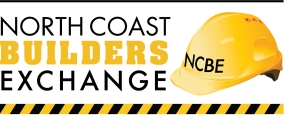10 Tips from Building Professionals
A Webinar for North Bay fire victims who plan on rebuilding their homes, conducted by the North Coast Builders Exchange. Click here to download the PDF.
TIP #1
You will need to use every means possible to find a qualified contractor that you’re comfortable with. Check with family and friends, neighbors, material suppliers, or trade organizations for suggestions. Watch for ads in local and social media, but be sure they are appropriately licensed. If you want to verify that a contractor is licensed, visit the Contractors State License Board website (www.cslb.ca.gov) or e-mail the North Coast Builders Exchange at planroom@ncbeonline.com.
TIP #2
To attract interest from a broader array of contractors, try to “bundle” your rebuilding project with others in your neighborhood. Many contractors will want to build multiple homes in an area at the same time for maximum efficiency and a likely reduction in construction costs. If “bundling” is not possible, ask any contractors you talk to if they are willing to build your home as a ‘stand-alone’ project.
TIP #3
Do your homework! Before and during a meeting with general contractors, find out all you can about their experience and qualifications. Visit their
Websites and request references, particularly past clients, and contact those references.
TIP #4
Don’t expect contractors to give you the precise costs of rebuilding your home. There are too many variables and unknowns for contractors at this
time and the best you can hope for is to get reasonable estimates. Ask a contractor to explain what these variables and unknowns are so that you’ll
have a better understanding of the difficulties they face in pricing your rebuilding project.
TIP #5
Since the pre-construction work that needs to be done is very complex, two good options for getting your home rebuilt as quickly as possible
are:
A) Hire a qualified architect to coordinate the pre-construction work;
B) Find a contractor who can coordinate this work.
Some of the pre-construction work includes civil engineering, architectural design, soils testing, landscape design, fire sprinkler design, structural engineering, site surveying, interior design, permitting, and more.
TIP #6
Have a full understanding of your home insurance policy and be prepared and willing to review that policy with a contractor. This will lead to a clear
understanding of exactly what rebuilding the policy allows for. Ask if the contractor has previous experience working with insurance companies and/or construction lenders.
TIP #7
It may seem obvious, but make sure everything you and a contractor discuss or agree upon is put in writing. Contractors often have different contract formats, so have an Attorney review any documents before you sign them.
TIP #8
Be sure to ask a contractor “What are your payment requirements?” Include in your discussions the issues of an initial deposit, all fees, and the payment schedule the homeowner is required to follow. Reaching agreement up front can prevent financial and legal problems later.
TIP #9
If you are not aware of the need to have a “lien free” project to discuss with a contractor, learn what that means. Have any contractor you meet with explain their lien and payment processes.
TIP #10
There are three important questions you should ask in any meeting you have with a contractor. You may not be able to get firm answers, but ask:
A) “Can you give me a general timeline for rebuilding my home?”
B) “How long will it take once you start construction?”
C) “If we agree on a contract, when can you start?”
